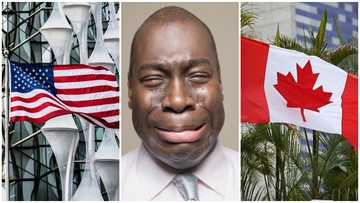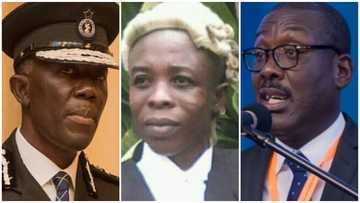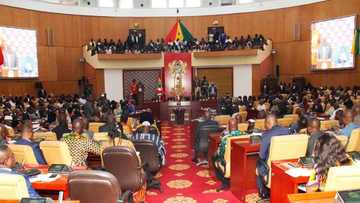National Cathedral: Priority of Priorities Or Another Easy Way To Waste Scarce State Money?
The opposition to the National Cathedral project is getting very loud. Certainly, louder now than in 2018 when the design for the mega edifice to be cited at the heart of Accra was unveiled. The public resistance to the project has moved from cynical comments about the African’s unrestrained attachment to religion to forceful criticisms about a misplaced priority and fishy release of state money.
PAY ATTENTION: Click “See First” under the “Following” tab to see YEN.com.gh News on your News Feed!
A leaked document revealing a directive by the finance minister to the Controller and Accountant-General’s Department for the release of $25 million of taxpayers’ money to contractors as seed capital for the National Cathedral project has triggered a renewed resistance.
The controversy generated by the leaked document and the subsequent release of the money has been premised on the views of the civil society and a section of the Ghanaian public that the government has said in the past that the Cathedral will not be funded with state cash.
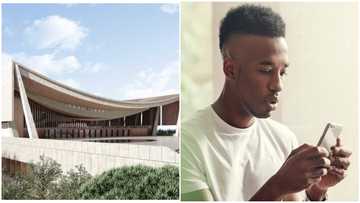
Read also
Price of Consultation Fee for National Cathedral Designed by Sir David Adjaye Got Tongues Wagging on Social Media
The other source of agitation is that times are really hard for Ghana. Rising inflation, dangerous depreciation of the local currency, and general hardships, partly caused by global economic challenges, make the project, which is merely an optics for piety in God, poorly timed. Civil society is also concerned about financial indiscipline and the possibility of graft that plagues such projects.
Then the start of heavy rains and the constant flooding of streets and homes sparked yet another debate about whether building a cathedral serves the public better than infrastructure to deal with Accra’s perennial floods.
Controversial project
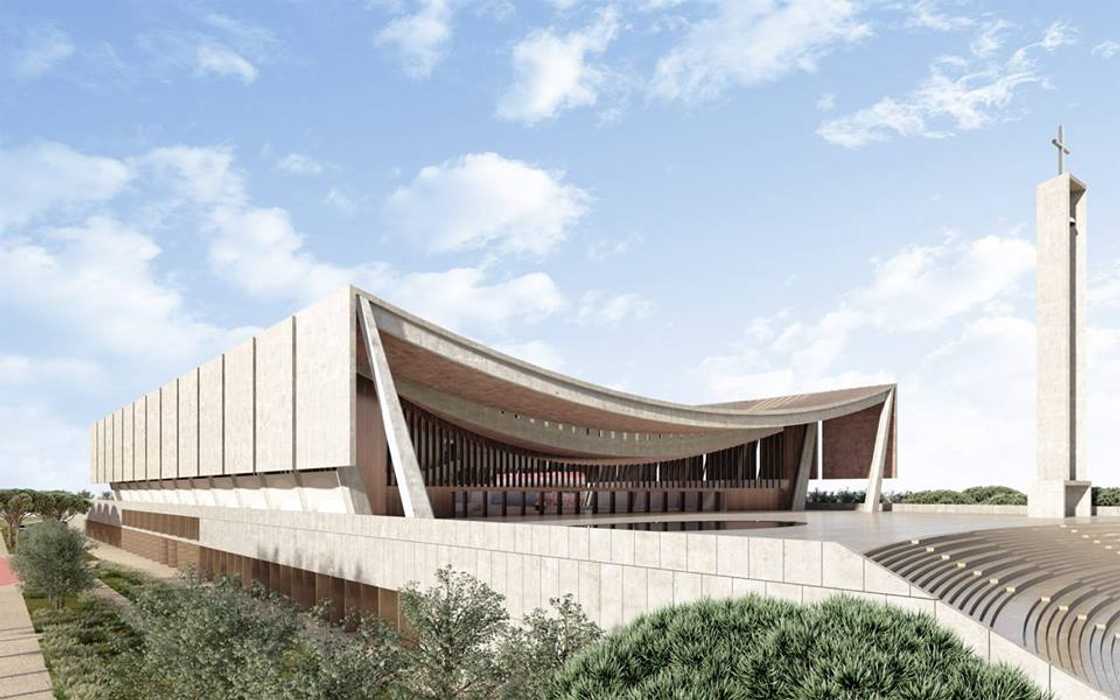
Source: UGC
PAY ATTENTION: check out news exactly for YOU ➡️ find "Recommended for you" block and enjoy!
The National Cathedral which President Nana Akufo-Addo and his government have described as the “priority of priorities” is his way of acknowledging the hand of God in the affairs of the country.
He explained in 2020 during a symbolic ceremony to lay the first stone of the edifice that he is convinced God has been the reason Ghana remains an island of peace and progress in a turbulent region.
“Ghana has so far been spared civil war, famine and epidemic. We are certainly not better than the other nations in our neighbourhood who have been confronted with these challenges and I believe it is by the grace of God that we are being sustained. It will be an act of thanksgiving to the Almighty for his blessing, favour, grace and mercy on our nation.”
The Cathedral, when completed, will stock rare religious artefacts and serve as a tourist site, according to the government. The president has said it will also be an interdenominational house of worship and prayer, and will serve as the venue for formal state occasions of a religious nature, such as the inauguration of Presidents, state funerals, national thanksgiving services, amongst others. It has also been described as a potential tourist site.
“The National Cathedral will be a unifying monument around which to elevate shared conversations on faith and on national transformation,” Nana Akufo-Addo has said.
It seems the eloquence with which this statement has been delivered has had a strong effect on the religious community. They remain the president’s strongest allies for the project apart from the government machinery and members of his governing New Patriotic Party (NPP).
Analysing the concerns
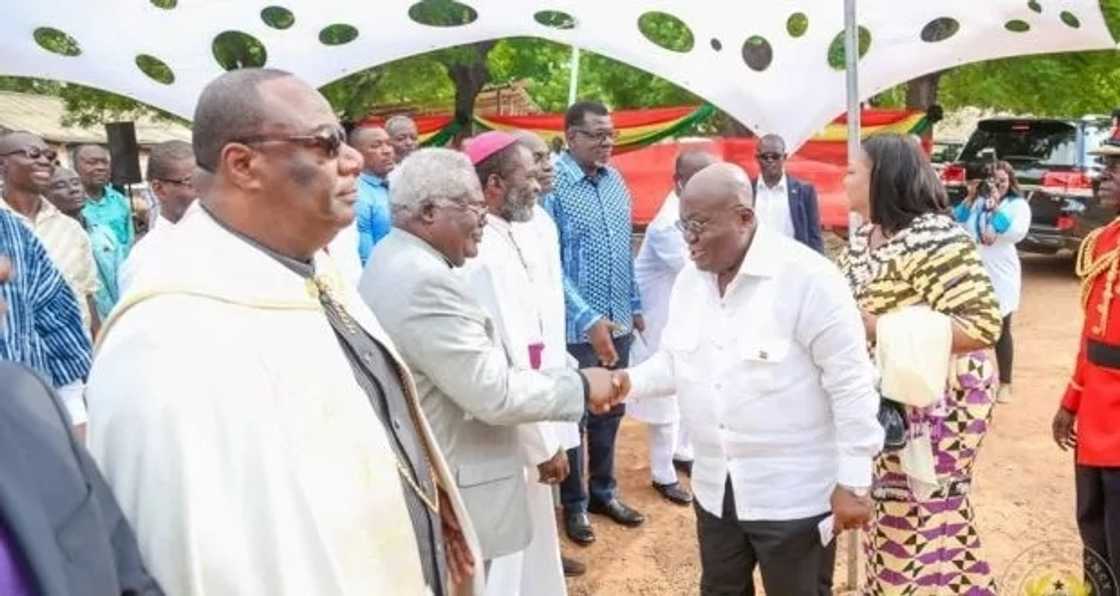
It is quite clear that beyond the government’s skewed view of what constitutes national gratitude to God, the National Cathedral project fails to offer much in terms of economic value. If it exists, the trustees in charge of erecting the edifice are yet to make it known.
On a government-approved website to promote Cathedral project, there is no explicit mention of the economic value it will bring to the state. This has become important since government has dipped its hands into state coffers to erect the edifice. But even if the government wanted to demonstrate that the project has long-term economic value, it won’t be able to do that. The reason is simple. The actual cost of the project, including the opportunity cost of destroying houses to make way for it and the compensations that were paid, remain largely murky and confused. It gets worse when the opposition argues that a whopping $32 million was paid to famous Ghanaian architect, Sir David Adjaye, for the design of the building.
The Secretary of the Board of Trustees in charge of the National Cathedral Prophet Victor Kusi Boateng revealed last year that the project would cost nothing less than $200 million. This contrasts with a $100 million price tag initially announced by Finance Minister Ken Ofori-Atta in 2019.
Although Prophet Boateng explained that the budget has shot up because new extensions have been added to the initial plan, civil societies remain sceptical. They see the project as just another avenue for financial slippages and underhand dealings by the government.
The Centre for Social Justice (CSJ), a left-of-centre think tank, for instance, takes this view. The CSJ thinks transparency and directness have been deficient in the government’s approach to building a dream edifice.
Chipping in their concerns about the controversial project, analysts at CSJ told YEN.com.gh that after creating the impression that funding for the project will be crowd-sourced and driven by the churches in Ghana, leaked documents reveal there is an active effort to mobilise revenue from government agencies on the blind side of Parliament, a concerned first raised by the opposition National Democratic Congress (NDC) MPs in the Legislature.
“The least we can do now is to request for the full facts – new buildings pulled down to create space, payments already made and to whom, current and future funding sources, and revenue projections – if the government truly believes this is a tourist site.
“At that point, we will truly appreciate what we are facing and how the government is prioritising at this time,” said CSJ’s Dr Sodzi-Sodzi Tettey.
Another civil society, IMANI Centre for Policy and Education, thinks the planned $200 million to be spent on the cathedral project flies in the face of the government’s desire to make state-owned enterprises more productive.
“The options that it has painted for us that we need to be supportive of the state enterprises project is not being matched with the kind of investment they are making in this cathedral,” IMANI boss, Franklin Cudjoe, said.
He wants the project, “put on ice” to enable the government to deal with procurement issues around it.
“Let’s have some proper conversations about the procurement. How are the people who are shepherding this project selected? Is the cost reflecting the exact cost of items? What is the level of exposure of the government?” Mr Cudjoe quizzed.
Also, a senior political science lecturer at the University of Ghana Professor Ranford Gyampo, in opposing the project turned his attention to the president’s supporters for the project, the religious organisations. Prof Gyampo thinks instead of raising funds for the National Cathedral they should channel their efforts into raising funds to improve critical public infrastructure that are struggling due to state neglect. He thinks the Korle Bu Teaching Hospital, for instance, needs all the financial support it can get.
“There is the urgent need for these pastors at the forefront of raising funds for the construction of the church house to channel these efforts at making some of the government’s social intervention programmes such as Free Senior High School and School Feeding Programme among others in the country better,” he said.
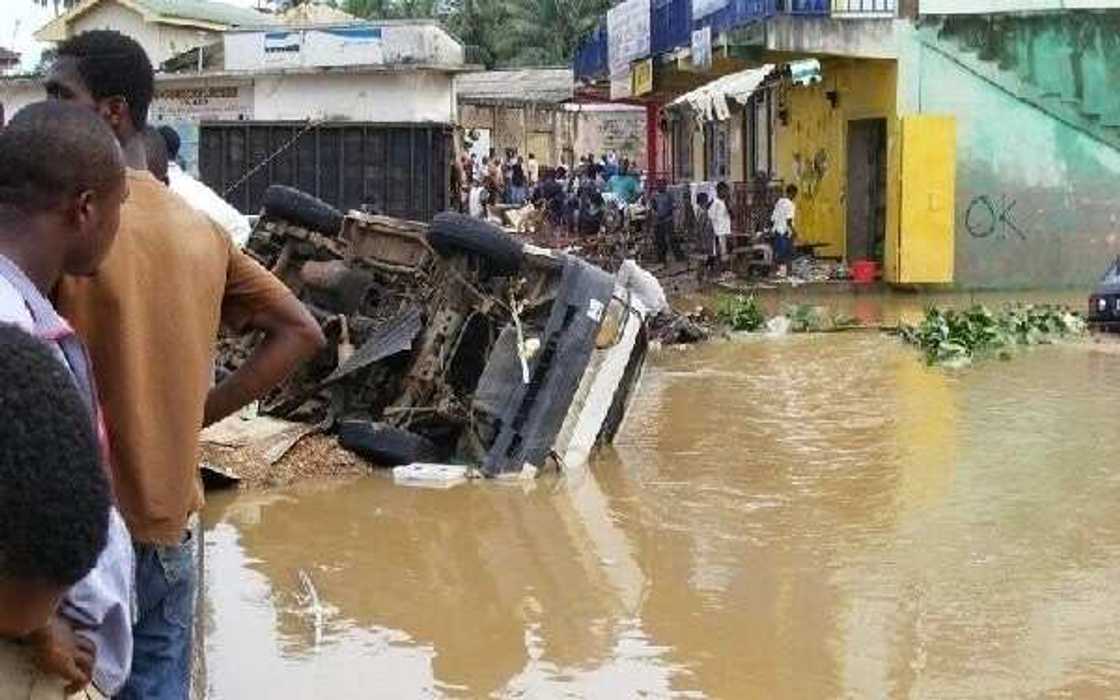
Source: UGC
In 2017 when the cathedral project reached public knowledge, Ghana’s economy was much more robust. With the economic shocks of the pandemic and the uncertain and risky global economic outlook caused by the Ukraine-Russia war, it makes sense to roll back on capital-intensive projects like the cathedral. It also makes sense to pursue policies that bring relief to the masses in a turbulent era – especially if scarce state funds are involved.
But even if funds are donated by churches and individuals for the cathedral, it would be understandable to invest them into policies that would ease the economic hardships Ghana is fraught with now. That would be more beneficial to the masses and the state.
Difficult times call for austerity. The president acknowledged the importance of austerity in these times when he urged Ghanaians to tighten their belts. The cathedral might be a grand, pious idea but pursuing it in these uncertain times, in the view of many well-meaning people, is not right.
PAY ATTENTION: check out news exactly for YOU ➡️ find "Recommended for you" block and enjoy!
Source: YEN.com.gh


